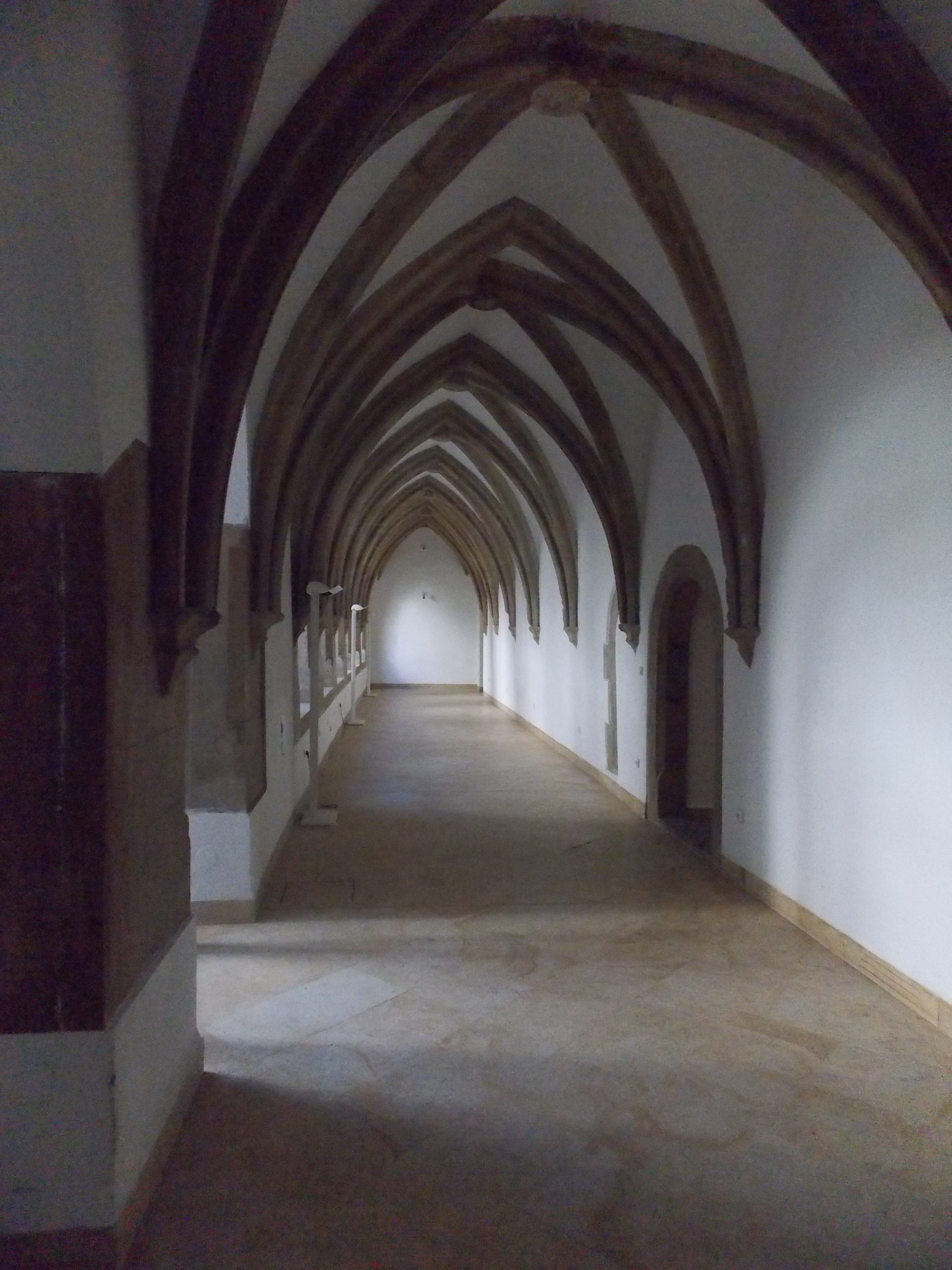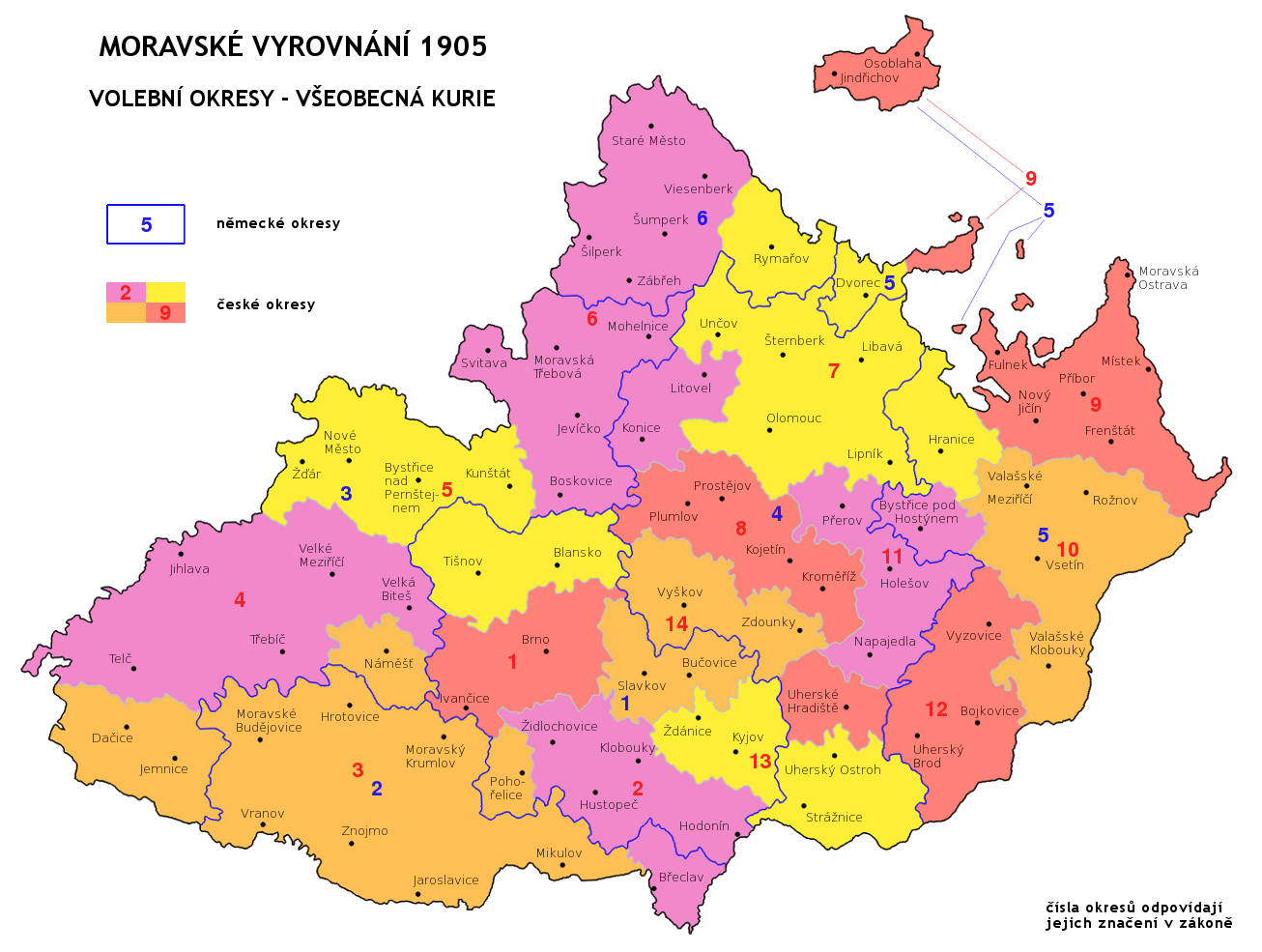Moravian Diet on:
[Wikipedia]
[Google]
[Amazon]
The Moravian Diet ( la, Moraviae generali colloquio; cs, Moravský zemský sněm, earlier Moravský stavovský sněm; german: Mährisch-ständische Landtag), was 

''The Moravian Compromise: light at the end of the tunnel?''
/ref> was one of the few positive examples of an approach to a fair solution in the field of nationalities policies. Despite the deadlock in the language dispute between Czechs and Germans, a compromise acceptable to both sides and allowing a harmonious coexistence was found here. The Moravian Compromise of 1905 was a root a compromise over what national equality of rights meant. Czech and German understanding of it, and the compromise between them, even found numerical expression - in the proportions set be by Compromise for staffing nationally shared public institutions, such as
Image:The Moravian Diet Drainage Act 42 -1918.JPG, The very last one Act No 42/1918 (Dig.)
Image:The Digest of Acts of Moravian Margraviate.JPG, Last Digest of Acts and Rules
Image:The Rules of Procedure of Moravian Diets and Land Constitution - Margraviate of Moravia - 1906.JPG, The last Moravian Constitution and Rules of Procedure of Moravian Diets
Image:Moravian Diet, Rules of Procedure, German.JPG, Rules of Procedure, German
legislature
A legislature is an assembly with the authority to make law
Law is a set of rules that are created and are enforceable by social or governmental institutions to regulate behavior,Robertson, ''Crimes against humanity'', 90. with its p ...
of Moravia, the Diet, or general assembly, of the Estates of the Margraviate of Moravia
The Margraviate of Moravia ( cs, Markrabství moravské; german: Markgrafschaft Mähren) was one of the Lands of the Bohemian Crown within the Holy Roman Empire existing from 1182 to 1918. It was officially administrated by a margrave in cooperat ...
and emerged from the earlier informal assemblies, known as Moravian corporate Diet (or Diet of estates of Moravian Land).

History
First session in 1254 convened to Brno by kingPřemysl Otakar II
Ottokar II ( cs, Přemysl Otakar II.; , in Městec Králové, Bohemia – 26 August 1278, in Dürnkrut, Lower Austria), the Iron and Golden King, was a member of the Přemyslid dynasty who reigned as King of Bohemia from 1253 until his dea ...
. Regular session started since 1288, and met alternately in Brno
Brno ( , ; german: Brünn ) is a city in the South Moravian Region of the Czech Republic. Located at the confluence of the Svitava and Svratka rivers, Brno has about 380,000 inhabitants, making it the second-largest city in the Czech Republic ...
and in Olomouc
Olomouc (, , ; german: Olmütz; pl, Ołomuniec ; la, Olomucium or ''Iuliomontium'') is a city in the Czech Republic. It has about 99,000 inhabitants, and its larger urban zone has a population of about 384,000 inhabitants (2019).
Located on th ...
(both Dominican cloister
A cloister (from Latin ''claustrum'', "enclosure") is a covered walk, open gallery, or open arcade running along the walls of buildings and forming a quadrangle or garth. The attachment of a cloister to a cathedral or church, commonly against a ...
). Since 1663 sessioned only in Brno
Brno ( , ; german: Brünn ) is a city in the South Moravian Region of the Czech Republic. Located at the confluence of the Svitava and Svratka rivers, Brno has about 380,000 inhabitants, making it the second-largest city in the Czech Republic ...
.
The liberal constitution
In the Year of revolution 1848 (Spring of Nations
The Revolutions of 1848, known in some countries as the Springtime of the Peoples or the Springtime of Nations, were a series of political upheavals throughout Europe starting in 1848. It remains the most widespread revolutionary wave in Europea ...
) was from 31. May 1848 until 21. January 1849 held (so called) Moravian constitutional assembly. In 19.September 1848 was by this assembly adopted Moravian Constitution
A constitution is the aggregate of fundamental principles or established precedents that constitute the legal basis of a polity, organisation or other type of Legal entity, entity and commonly determine how that entity is to be governed.
When ...
(German
German(s) may refer to:
* Germany (of or related to)
**Germania (historical use)
* Germans, citizens of Germany, people of German ancestry, or native speakers of the German language
** For citizens of Germany, see also German nationality law
**Ger ...
: ''Der Ferfassung für das Markgrafthum Mähren'', Czech
Czech may refer to:
* Anything from or related to the Czech Republic, a country in Europe
** Czech language
** Czechs, the people of the area
** Czech culture
** Czech cuisine
* One of three mythical brothers, Lech, Czech, and Rus'
Places
* Czech, ...
: ''Zřízení pro Markrabství Moravské''). This complies with the principles of the Federal Constitution and state representative government and civil liberties. Later this proposal was not ratified by Emperor Francis Joseph I.
Moravian Compromise
On November 27, 1905, leading members in Moravian Diet of theCzech
Czech may refer to:
* Anything from or related to the Czech Republic, a country in Europe
** Czech language
** Czechs, the people of the area
** Czech culture
** Czech cuisine
* One of three mythical brothers, Lech, Czech, and Rus'
Places
* Czech, ...
(speaking) and German
German(s) may refer to:
* Germany (of or related to)
**Germania (historical use)
* Germans, citizens of Germany, people of German ancestry, or native speakers of the German language
** For citizens of Germany, see also German nationality law
**Ger ...
(speaking) communities in Moravia
Moravia ( , also , ; cs, Morava ; german: link=yes, Mähren ; pl, Morawy ; szl, Morawa; la, Moravia) is a historical region in the east of the Czech Republic and one of three historical Czech lands, with Bohemia and Czech Silesia.
The me ...
agreed to a political compromise that divided power in the provincial diet
The estates of the realm, or three estates, were the broad orders of social hierarchy used in Christendom (Christian Europe) from the Middle Ages to early modern Europe. Different systems for dividing society members into estates developed and ...
between Czechs
The Czechs ( cs, Češi, ; singular Czech, masculine: ''Čech'' , singular feminine: ''Češka'' ), or the Czech people (), are a West Slavic ethnic group and a nation native to the Czech Republic in Central Europe, who share a common ancestry, c ...
, Germans
, native_name_lang = de
, region1 =
, pop1 = 72,650,269
, region2 =
, pop2 = 534,000
, region3 =
, pop3 = 157,000
3,322,405
, region4 =
, pop4 = ...
, and members of the landowning and ecclesiastical aristocracy.
The Moravian Compromise
Moravian is the adjective form of the Czech Republic region of Moravia, and refers to people of ancestry from Moravia.
Moravian may also refer to:
* a member or adherent of the Moravian Church, one of the oldest Protestant denominations
* Moravia ...
/ref> was one of the few positive examples of an approach to a fair solution in the field of nationalities policies. Despite the deadlock in the language dispute between Czechs and Germans, a compromise acceptable to both sides and allowing a harmonious coexistence was found here. The Moravian Compromise of 1905 was a root a compromise over what national equality of rights meant. Czech and German understanding of it, and the compromise between them, even found numerical expression - in the proportions set be by Compromise for staffing nationally shared public institutions, such as
crownland
Crown land (sometimes spelled crownland), also known as royal domain, is a territorial area belonging to the monarch, who personifies the Crown. It is the equivalent of an entailed estate and passes with the monarchy, being inseparable from it. ...
legistrature and administration, and for funding nationally partitioned ones, such as school.
The electoral conditions were altered so as to include in addition to the three electoral classes of the great landowners, the taxpayer
A taxpayer is a person or organization (such as a company) subject to pay a tax. Modern taxpayers may have an Taxpayer Identification Number, identification number, a reference number issued by a government to Citizenship, citizens or Company, f ...
s in urban areas, and the taxpayers in rural district
Rural districts were a type of local government area – now superseded – established at the end of the 19th century in England, Wales, and Ireland for the administration of predominantly rural areas at a level lower than that of the Ad ...
s a fourth universal electoral class consisting of every qualified voter; separate German and Czech electoral district
An electoral district, also known as an election district, legislative district, voting district, constituency, riding, ward, division, or (election) precinct is a subdivision of a larger state (a country, administrative region, or other polity ...
s were established according to the national land registers, and Curia
Curia (Latin plural curiae) in ancient Rome referred to one of the original groupings of the citizenry, eventually numbering 30, and later every Roman citizen was presumed to belong to one. While they originally likely had wider powers, they came ...
of the separate nationalities were instituted to settle all disputes involving the question on nationality. The question of language in the case of the autonomous national and district authorities has been settled on a bilingual basis, and the division of the school board according to nationality accomplished. Although, by the acceptance of this franchise reform, the Germans lost their previous majority in the Diet, they gave their consent to the change in the interests of public peace
Peace is a concept of societal friendship and harmony in the absence of hostility and violence. In a social sense, peace is commonly used to mean a lack of conflict (such as war) and freedom from fear of violence between individuals or groups. ...
.
Politically speaking the Margraviate of Moravia
The Margraviate of Moravia ( cs, Markrabství moravské; german: Markgrafschaft Mähren) was one of the Lands of the Bohemian Crown within the Holy Roman Empire existing from 1182 to 1918. It was officially administrated by a margrave in cooperat ...
is an Austrian crown land, the highest administrative authority being vested in the governor
A governor is an administrative leader and head of a polity or political region, ranking under the head of state and in some cases, such as governors-general, as the head of state's official representative. Depending on the type of political ...
at Brno. The Diet consists of 149 deputies: 2 members with individual vote, the Archbishop of Olomouc
The following is a list of diocesan bishops and archbishops of Olomouc. Not much is known about the beginnings of the Diocese of Olomouc. It was reestablished in 1063 and in 1777 it was elevated to an archdiocese.
Bishops of Olomouc
*''89 ...
and the Bishop of Brno; 30 members of the landed interests (10 German, 20 Czech); 3 deputies from the Chamber of Commerce
A chamber of commerce, or board of trade, is a form of business network. For example, a local organization of businesses whose goal is to further the interests of businesses. Business owners in towns and cities form these local societies to ad ...
of Brno and from that of Olomouc; 40 representatives of the towns (20 German, 20 Czech); 51 representatives of the rural communes (14 German); 20 deputies from the electoral curia (6 German). In the Reichsrat (Imperial parliament in Vienna) of the Austrian Crownlands Moravia is represented by 49 deputies.

References
External links
{{Authority controlDiet
Diet may refer to:
Food
* Diet (nutrition), the sum of the food consumed by an organism or group
* Dieting, the deliberate selection of food to control body weight or nutrient intake
** Diet food, foods that aid in creating a diet for weight loss ...
Legislatures of Austria-Hungary